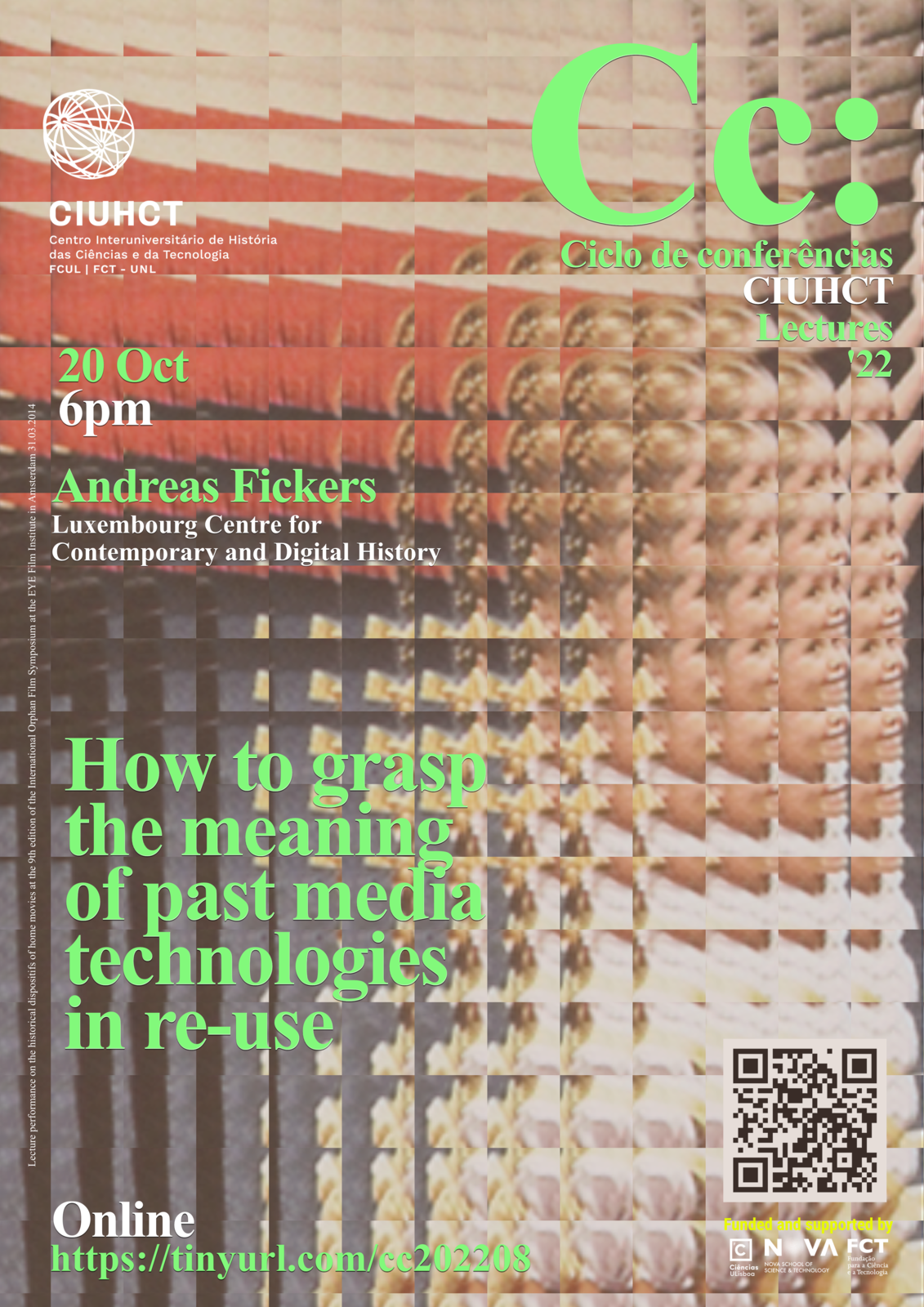2022 #8 Andreas Fickers (Luxembourg Centre for Contemporary and Digital History), "How to grasp the meaning of past media technologies in re-use"
[Online]
20 outubro 2022 · 18h00

Resumo (em inglês)
Reconstructing past user experiences is one of the most challenging tasks for historians of technology. Experimental media archaeology (EMA) adds a new interpretative layer in the complex historical study of past media practices. By redoing past media experiments, reenacting past media performances, or reconstructing media technological objects, EMA tries to enlarge the methodological toolkit of classical media history and history of technology by an experimental hands-on approach which challenges traditional forms of historical research. This lecture discusses the practical challenges of doing EMA in various settings and aims at reflecting on the role of the historian-experimenter as active co-constructor of the “epistemic thing” he or she aims to study. In other words: it aims at looking more closely at the “science in action” (Latour) and at the process of historical knowledge construction that is unfolding while doing experiments in media archaeology. As the doing of EMA involves both our minds and bodies, we need to think about how to make the implicit mingling of our bodies in the production of new historical knowledge explicit.
sobre o orador (em inglês)
Andreas Fickers is Professor for Contemporary and Digital History and founding Director of the Luxembourg Centre for Contemporary and Digital History (C2DH), the third Interdisciplinary Centre of the University of Luxembourg. His research focuses on European history of technology (mainly communication technologies), transnational and intermedial media history, experimental media archaeology, digital history and hermeneutics, and transmedia storytelling in history. Current research projects include "Popular Culture Transnational in the Long Sixties" (https://popkult60.eu), "Doing Experimental Media Archaeology" (https://dema.uni.lu), and the Doctoral Training Unit on “Digital History and Hermeneutics” (https://dhh.uni.lu). He is editor-in-chief of the multilayered Journal of Digital History(https://journalofdigitalhistory.org) and co-author of Communicating Europe: Technologies, Information, Events(Palgrave-Macmillan, 2019).